
All photos by Jim McCarty, AMEC.
“There is not a thing they cannot do,” said Craig Moeller, the Association of Missouri Electric Cooperatives’ (AMEC) Director of Field Training Services, referring to the volunteer lineworkers he recently traveled with to Guatemala. “Bringing electricity is right in their ballpark. It’s the same thing we did 50-80 years ago with no blueprint.”
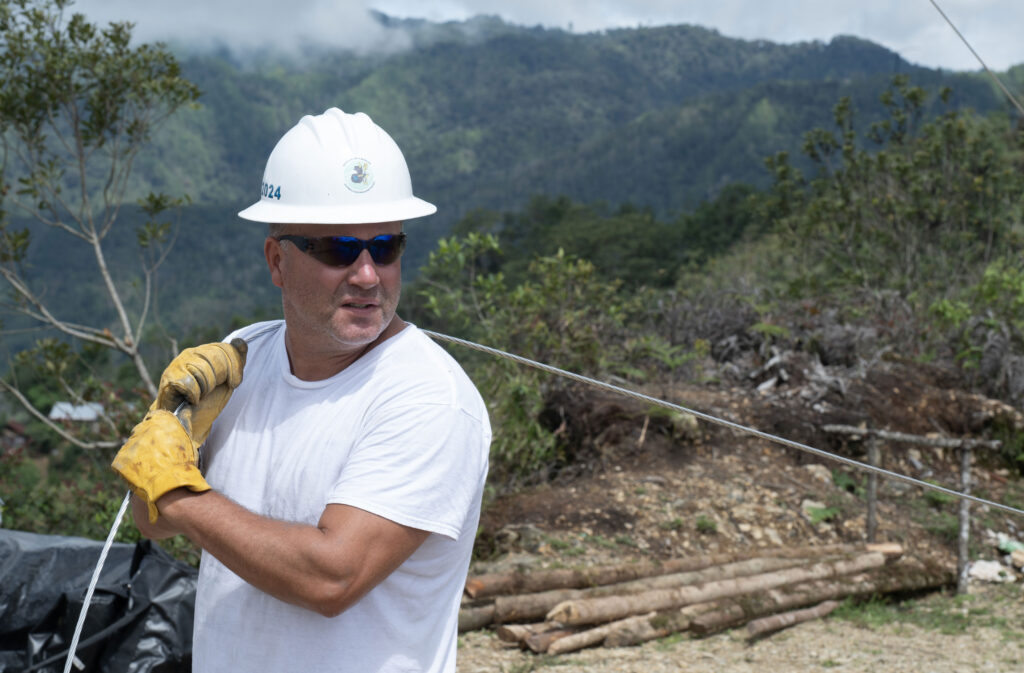
In August 2024, Moeller led his sixth Missouri on a Mission team of eight volunteer co-op lineworkers from Missouri to Guatemala. They completed the project’s first of two phases that will eventually bring power to 123 households, a school, and health center in Viucalvitz, a village located in northwestern Guatemala.
For Phase 1, the team constructed five kilometers of primary and secondary lines that spanned 62 poles through steep ravines in the mountainous region of Sierra de La Madre, creating the infrastructure needed for the second team to finish the work.
Returning to Trapichitos
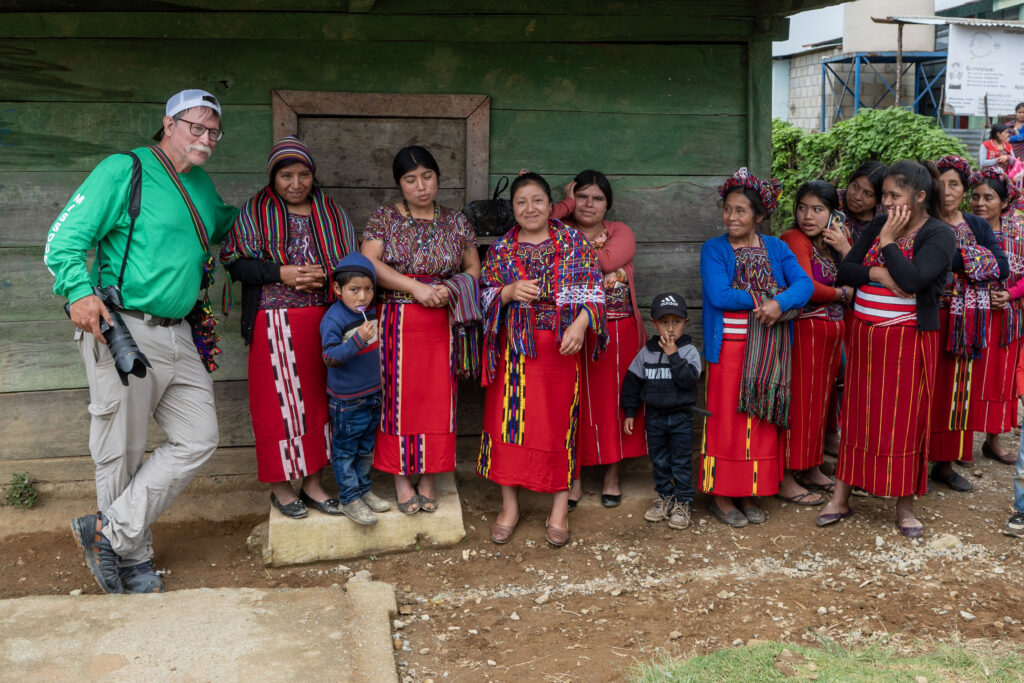
AMEC’s Jim McCarty traveled with the team as the photographer to document the project. This was also McCarty’s 6th volunteer mission, and he was excited to return to Trapichitos where in 2020, he was with another group of Missouri co-op volunteers who worked to bring power to this community.
“The town is growing, a new restaurant, and the people I met four years ago were ecstatic!” said McCarty “There are new homes and more under construction.”
Starting from Trapichitos, the team tapped into the last pole with electricity service, and constructed five kilometers of line through Vilacam, another small village. It wasn’t part of the plan, but they also wired 11 homes, making it possible for the community to turn on their lights.
“We weren’t expecting to turn the lights on in this village, and we got it done,” said McCarty. “The people didn’t expect it either, and it didn’t dawn on them until night.”
Ready for anything
Moeller and McCarty agreed that the terrain for this project was especially tough, but the lineworkers were ready.
“The elevation dropped 3000 feet from pole 45 to pole 1,” said Moeller. The ravine goes down 1000 feet — and they all said, ‘when do we start?'”
“You have to remember that these are co-op linemen,” said McCarty. “If you send them to the moon, they’ll just use whatever they have in their toolkit to build powerlines.”
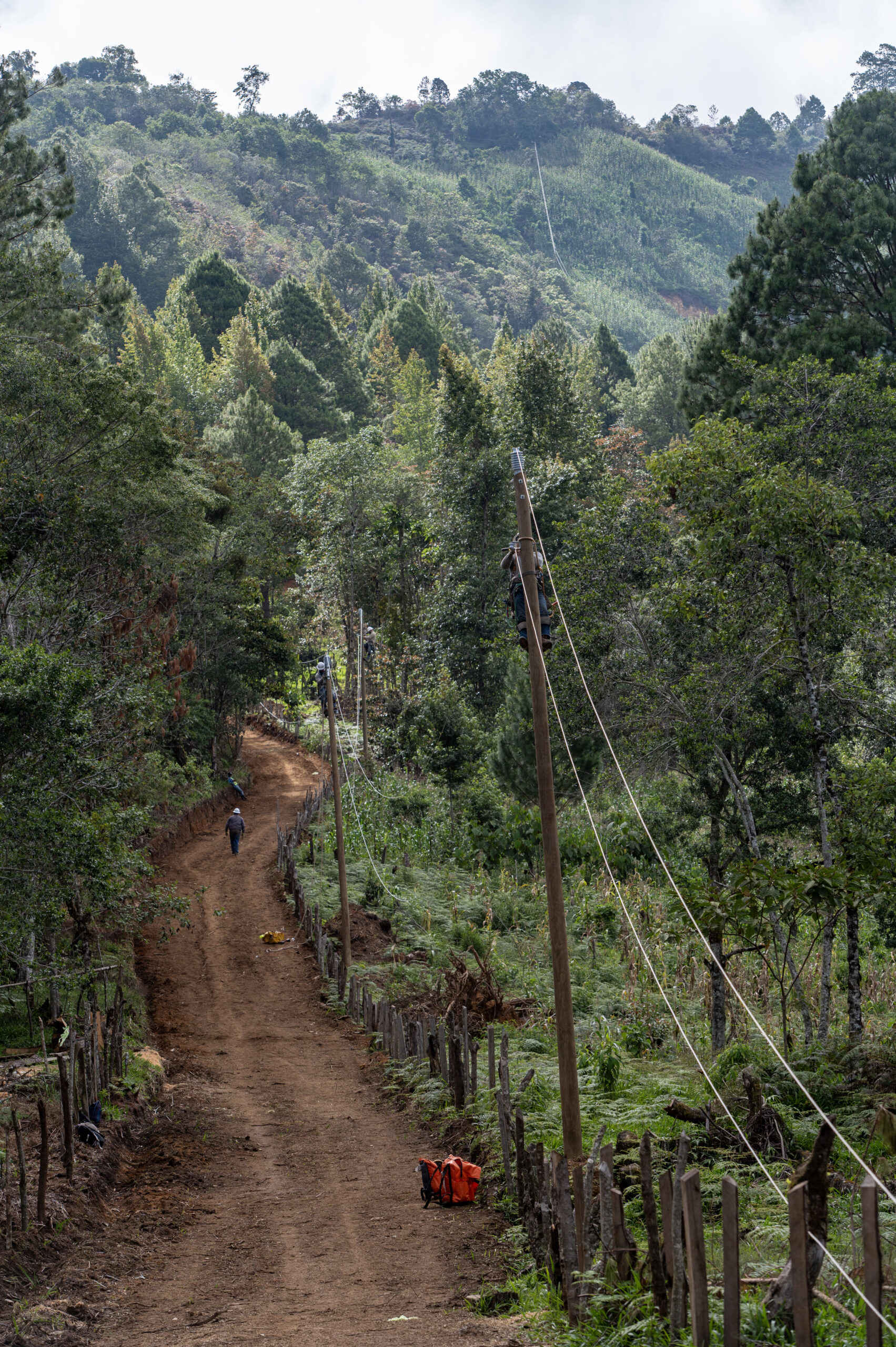
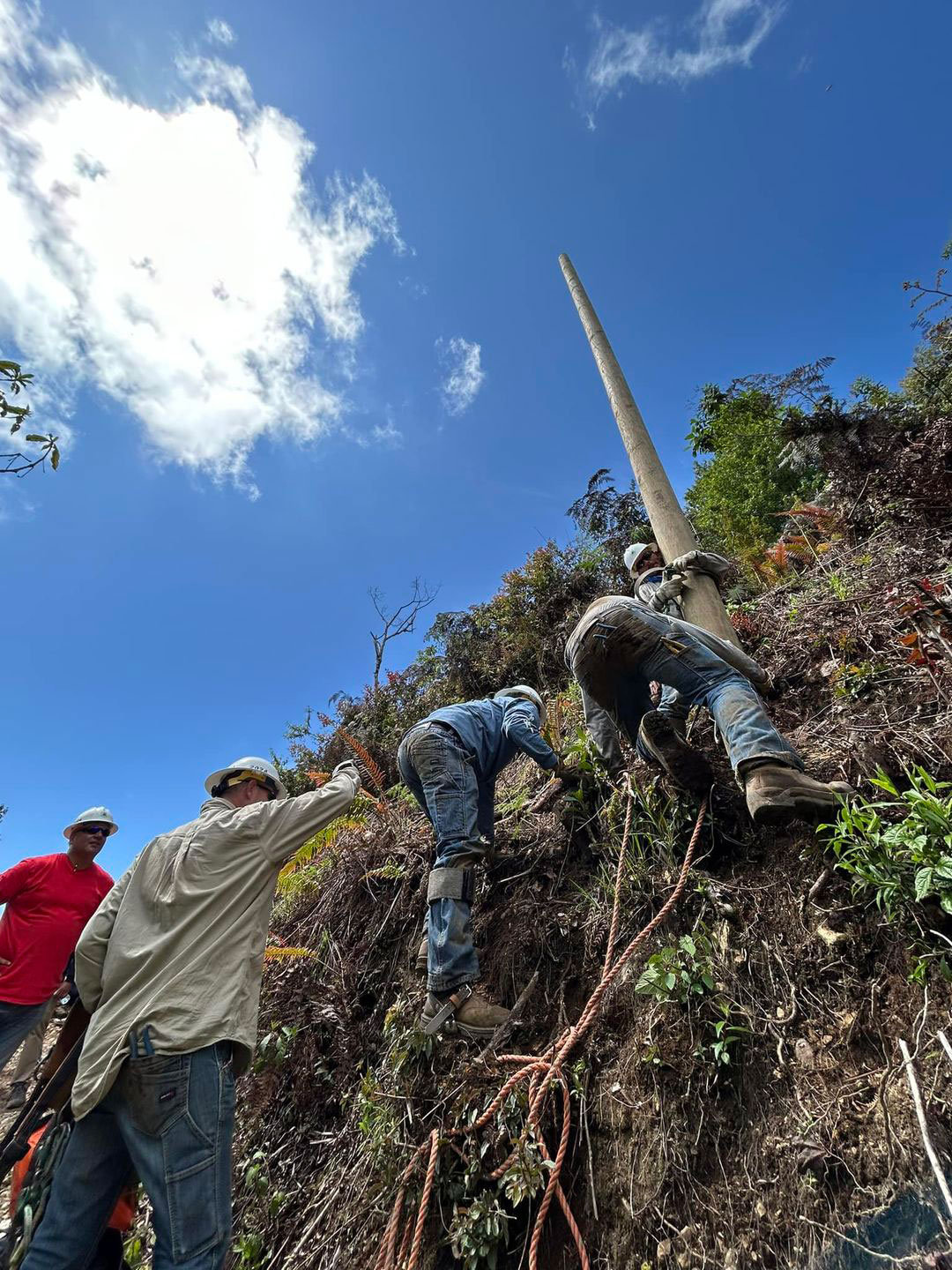
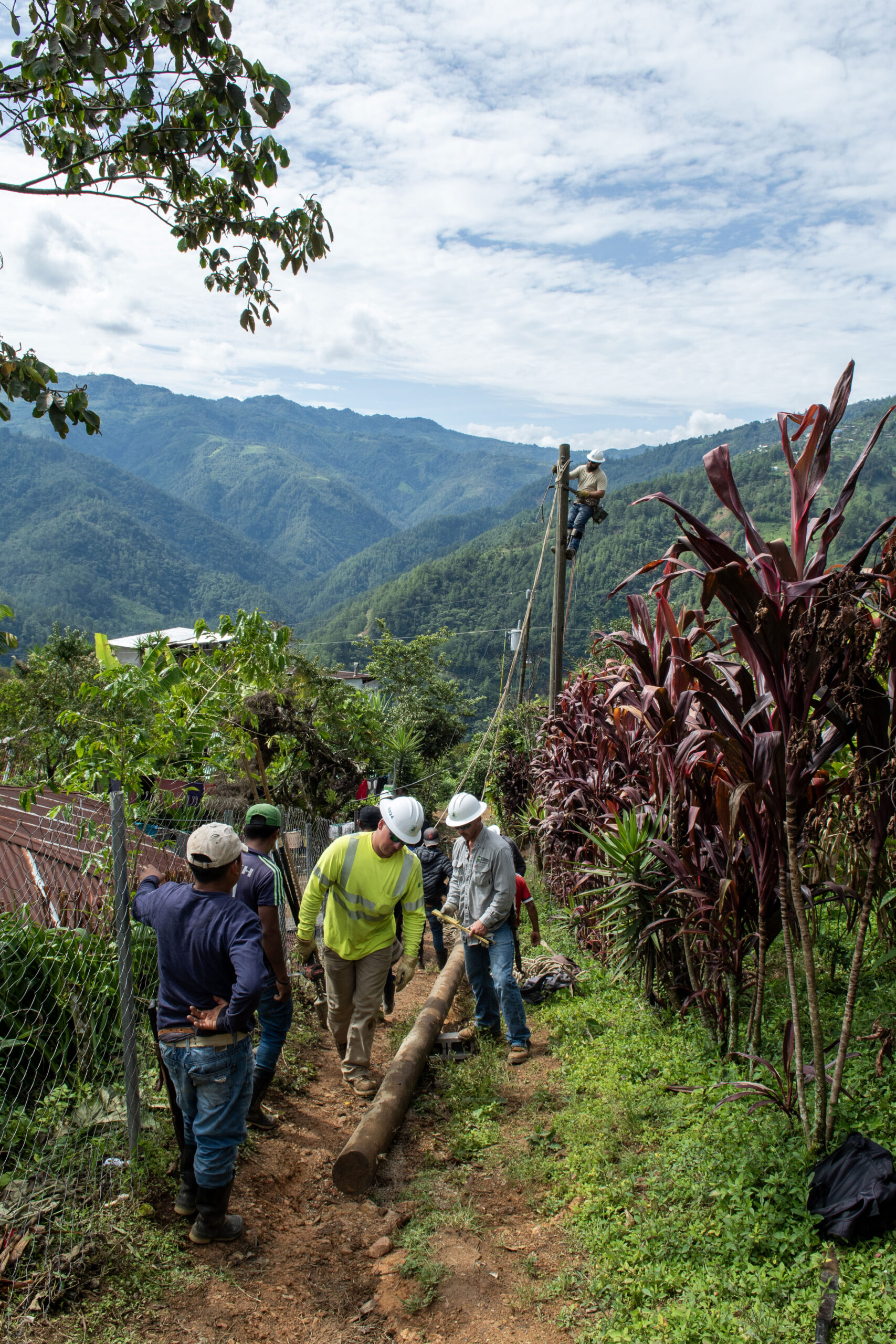
Moeller said that these challenging situations build character, and the volunteers go home changed for the better and often become natural leaders.
“The first thing I tell these guys before we go is to have an open mind because we are going to face challenges we’ve never had before,” said Moeller. “And at the end, they gain confidence from living in really rough conditions getting up day after day after hiking two miles up a mountain, and never once complaining.”
Mike Partin, CEO of Sequachee Valley Electric Cooperative in Tennessee, joined the team towards the end of the project. He is also the NRECA’s Vice President and he wanted to see the work first-hand, after hearing so much about NRECA International’s mission and the popular volunteer program.
“Leaders lead from the front, and they will take risk and explore where others will not,” said Partin. “The men and women who volunteer for these types of trips know the conditions will be tough, but the experience will give them the tools to step out from the rest of the pack.”
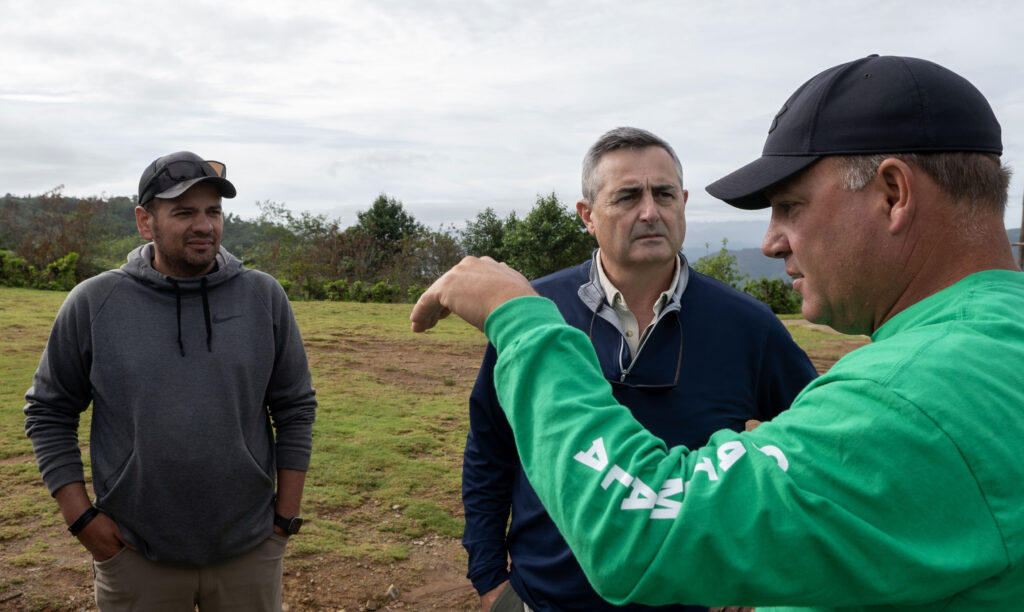
Rural connections: A conversation with Mike Partin
One community for all
The community didn’t watch from the sidelines while the volunteers worked.
“Without the help of the villagers, none of these projects can get done,” said Moeller. “About 20-30 people helped us with carrying bags, tools, and pulling lines. With just eight linemen, we wouldn’t have been able to do it all.”
Partin noticed the special bond between the volunteers and the community, and the connection reminded him of a time when his grandparents did not have electricity.
“I’m from Southern Appalachia and we’re not too many generations removed from living in the same conditions with the people in the village,” Partin said. “This experience solidified for me that we have a lot of bases to cover, and as a national cooperative association we cannot overlook our obligation to the greater good.”
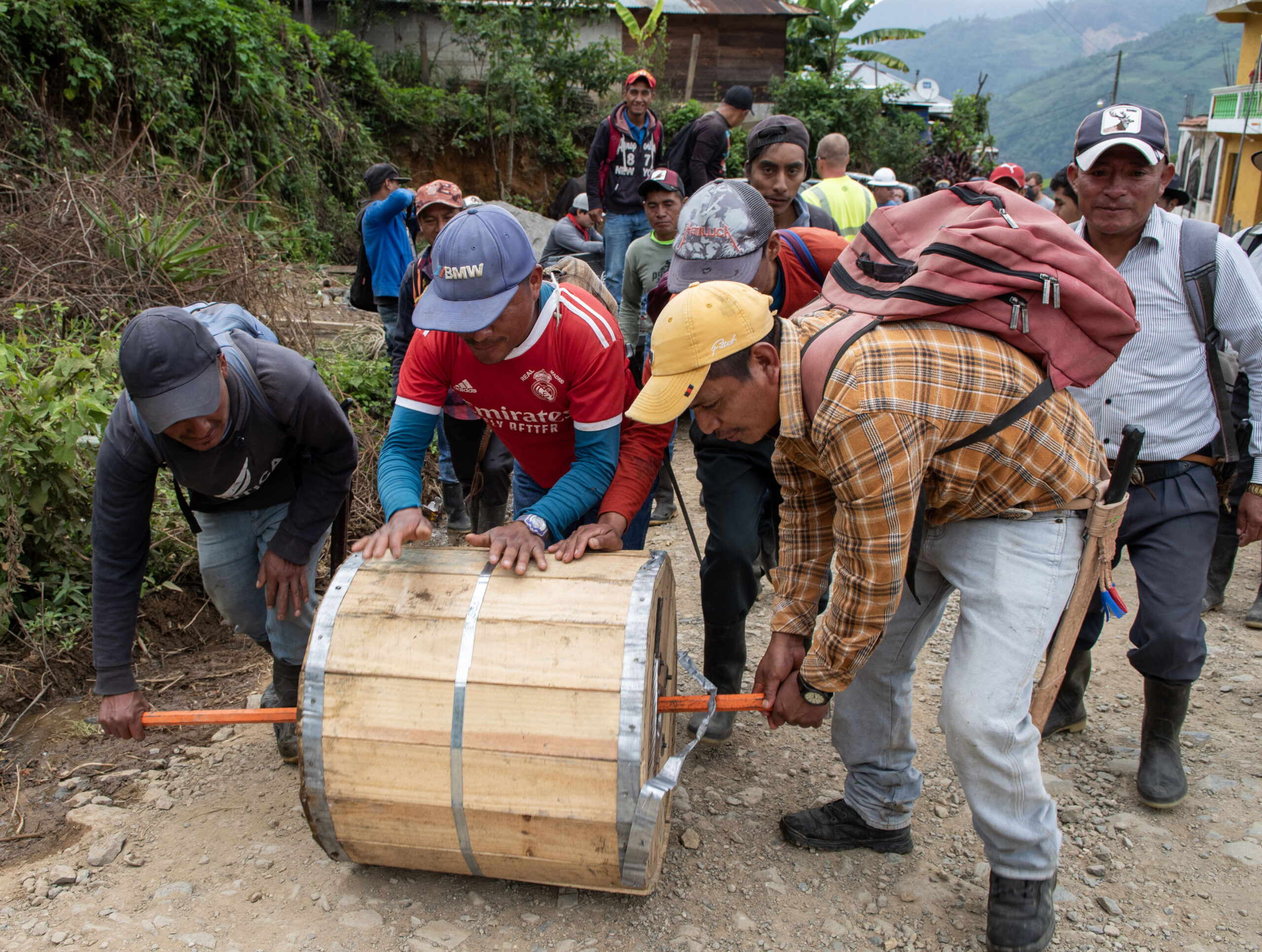
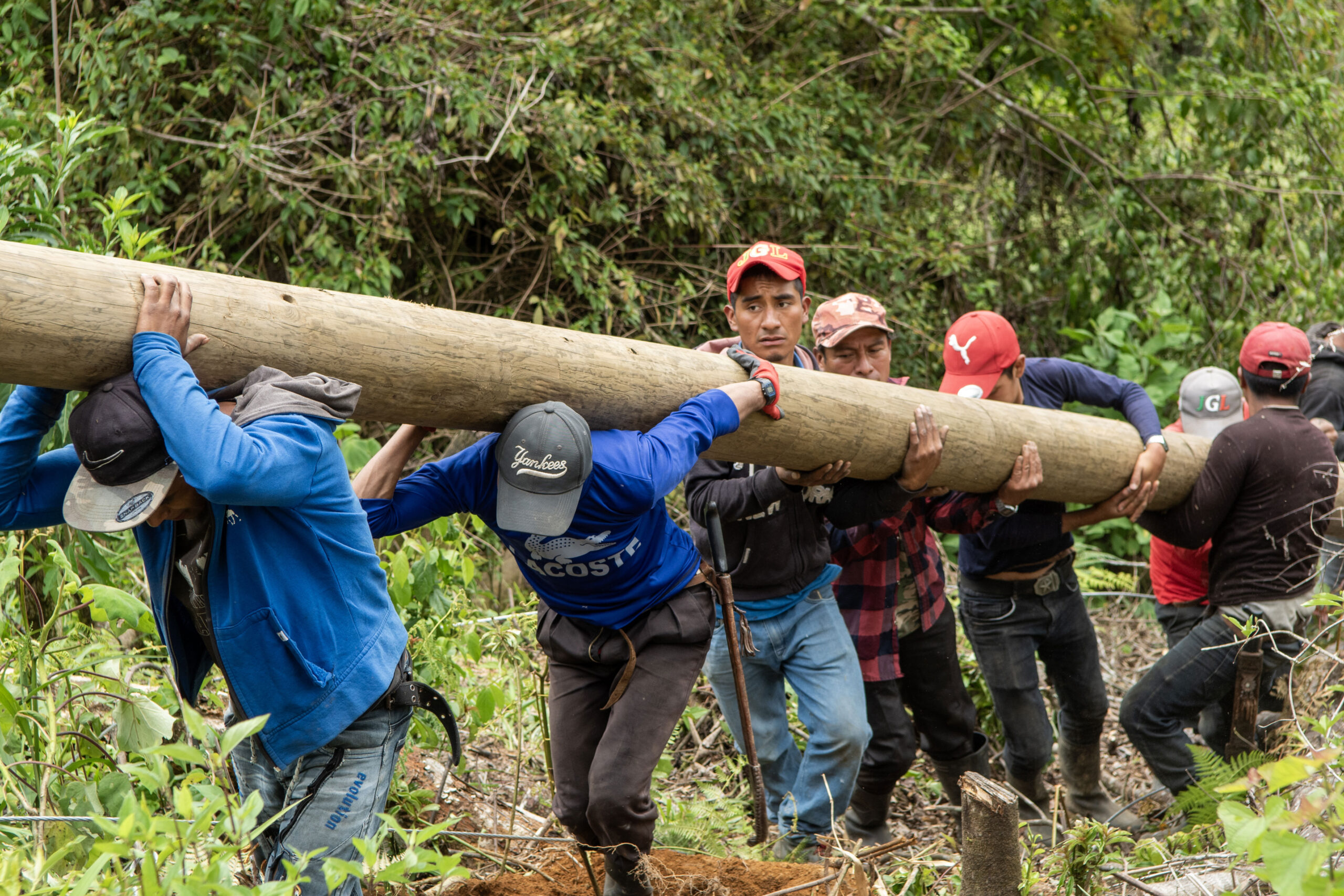
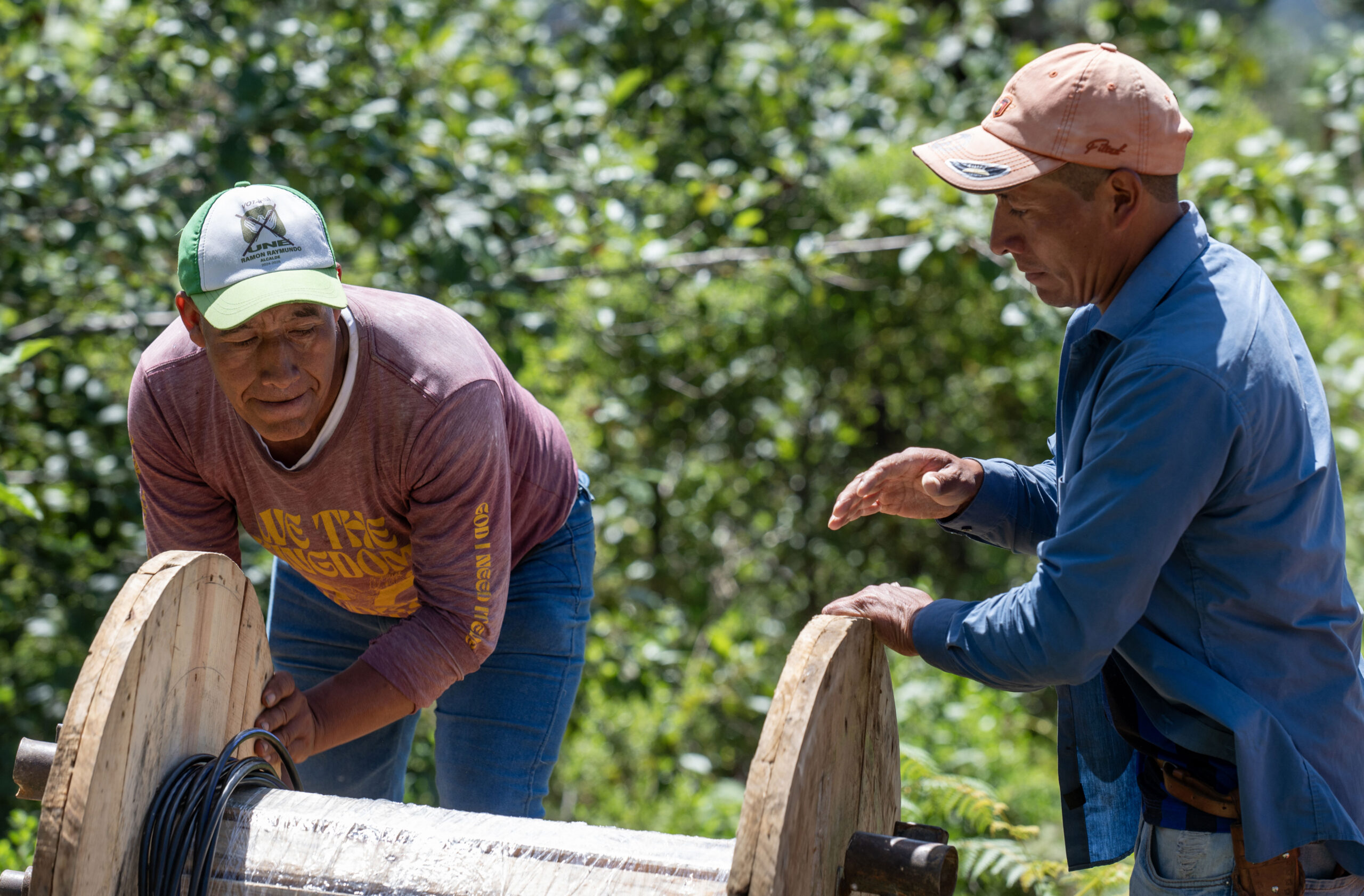
The team from Missouri and their co-ops also raised enough money to purchase two refrigerators and power drills for the community, and a sound system for the school. The volunteers bought the equipment from the nearest town and transported it all back up the mountain to the villages.
At the end of the project, an inauguration ceremony was held in Viucalvitz to celebrate the arrival of electricity, and the positive changes that will soon follow.
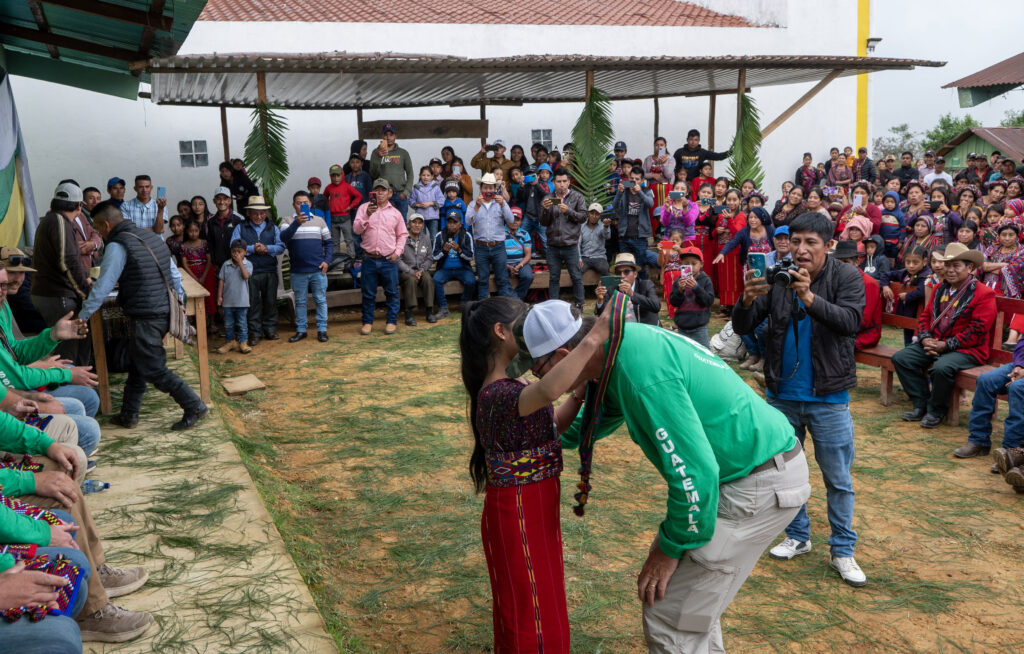
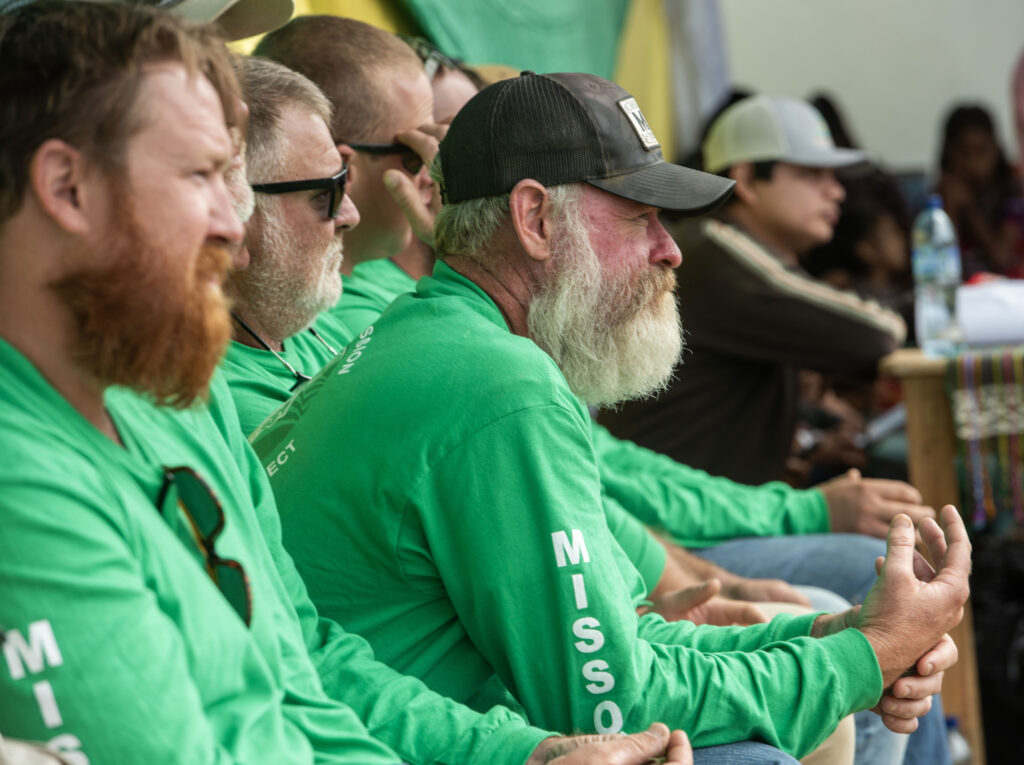
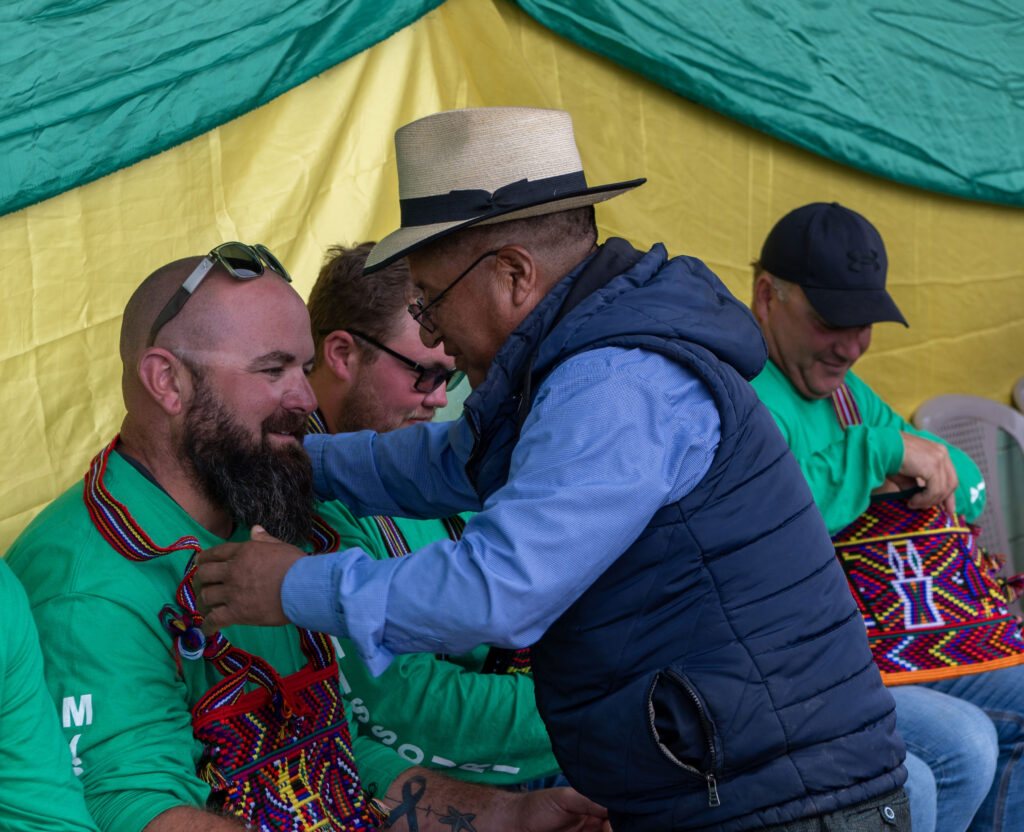
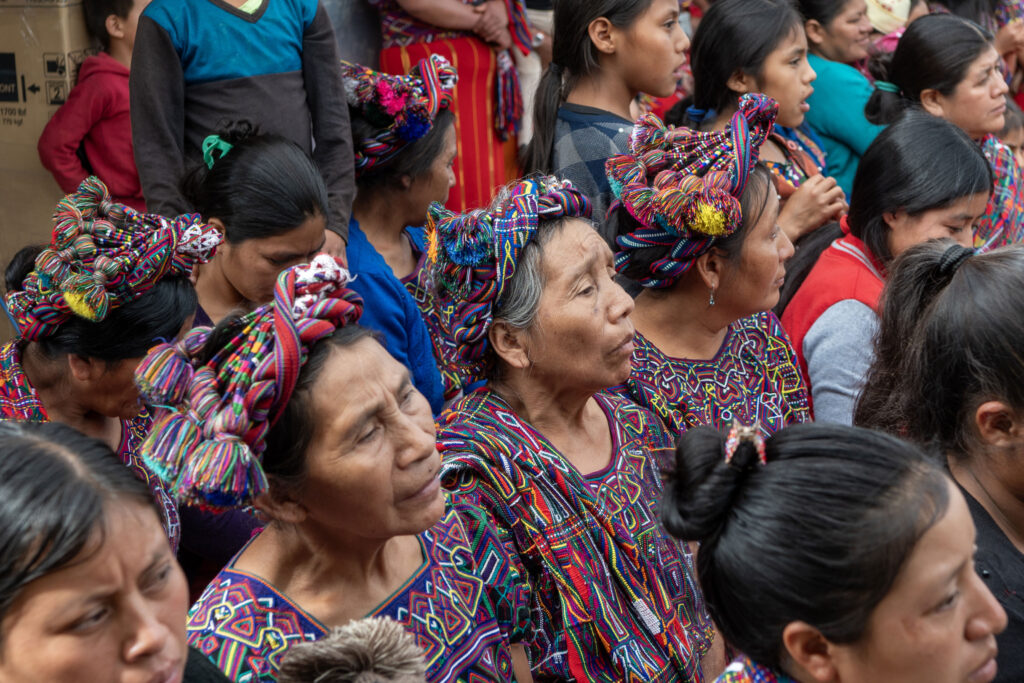

More to be done
Later this year, Moeller and McCarty will travel again to Guatemala with the Phase 2 team. In addition to Missouri, in October a team from Oklahoma will be working in Barejones, East of Guatemala City. Earlier this year, volunteers from Alabama, Tennessee, Iowa and Minnesota completed two other electrification projects, in different regions of Guatemala.
“There’s so much support for the international program and national co-op leaders need to keep the momentum going out there,” said Partin. “Part of our DNA as co-op folks is to help people. Whether it’s after a hurricane or a rural village in Guatemala. We want to make a difference. That’s the beauty of who we are.”
Learn more about how It Starts With Power and how to get involved.